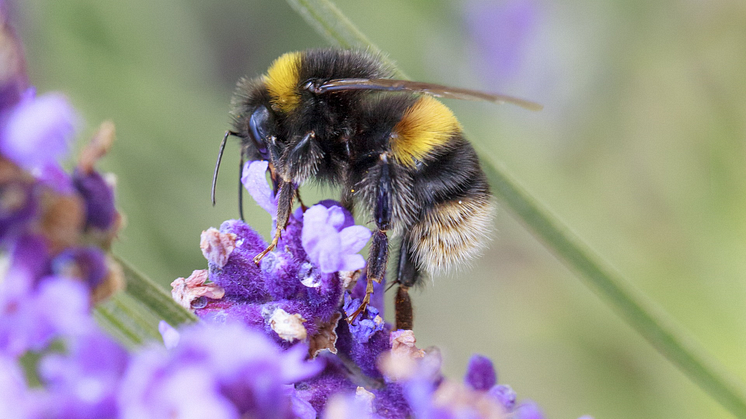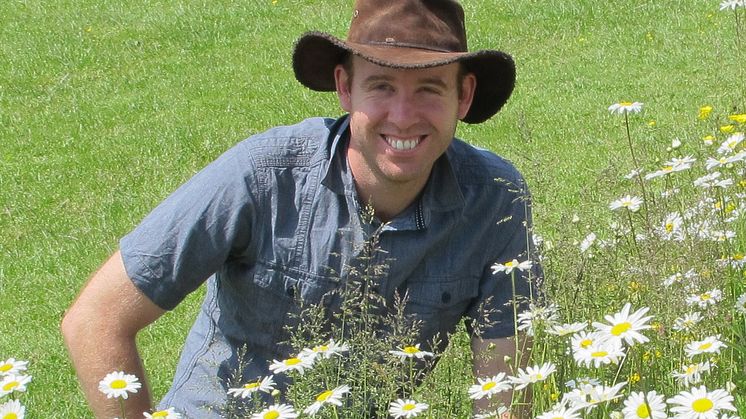
Press release -
Humanity for Habitat – saving nature at home
The important role of managing residential gardens and yards to promote biodiversity is the focus of a new study led by the U.S. Department of Agriculture Forest Service and co-authored by an academic from Northumbria University.
Assistant Professor and urban ecologist at Northumbria University, Dr Mark Goddard, also worked alongside researchers from Georgetown University in Washington D.C, Arizona State University, the University of Massachusetts and Vermont Centre for Ecostudies, to analyse data on the value of residential outdoor spaces as habitats.
Published in the journal BioScience, “Humanity for Habitat: Residential Yards as an Opportunity for Biodiversity Conservation” details practical management activities to promote biodiversity. Residential gardens and yards support regional biodiversity, and features within gardens and across neighbourhoods interact and can provide critical habitat for at risk species, including birds, pollinators, and mammals.
Despite the majority of the world's population living in urban and suburban areas, conservation efforts often focus on protected areas, parks, and other non-residential greenspaces, limiting opportunities for the vast majority of residents to participate in biodiversity conservation. Researchers tallied land area in residential gardens and yards, and estimated 30 per cent of all land in the continental United States is classified as residential – four times more area than lands classified as protected.
"When you look at all of the land held privately, it’s actually a substantial part of the area of the United States. That means how we use and manage private lands is really important for wildlife. It’s also an amazing place where humans can interact with the outdoors. So, it’s this perfect chance to try and restore habitat that was once lost as well as rekindle in people their connection to nature,” said study co-author Peter Marra of the Earth Commons, Georgetown University's Institute for Environment & Sustainability.
Dr Goddard, from Northumbria University’s Department of Geography and Environmental Sciences, said: “This article is global in scope and, although many of the examples and case studies used are from the U.S, there are plenty of parallels to be drawn here in the U.K.

“The importance of gardens for protecting wildlife and connecting people to nature is too often overlooked. In a city like Newcastle, gardens make up around one quarter of the land area. This means that how we design and manage our backyards has a major impact on the plants and animals that live there.
“Small actions that many of us can make, like reducing the frequency of lawn mowing, planting a tree, or creating a pond, can scale up to greatly increase wildlife habitat across our towns and cities. Wildlife-friendly gardening can also increase climate resilience and enhance human well-being – it’s a win-win-win for people and nature.”
Collectively managing gardens and yards for the benefit of ecosystems has a strong precedent as demonstrated by the Victory Gardens promoted by the governments in the United States, United Kingdom, Canada and Australia during the Second World War. Governments and popular media outlets promoted this act of stewardship and praised the benefits of these gardens for both the war effort and nutritional value. The new study suggests the current biodiversity crisis, like Victory Gardens of the past, requires action on a global scale to make a difference.
Lead author of the study, Susannah Lerman of the US Forest Service Northern Research Station, explained: “Making small changes to yard management and encouraging and inspiring more vigorous participation in conservation actions where people live, can have a big and positive impact on wildlife and biodiversity. In essence, everyone who manages an area of land, no matter the size, has a role to play and can contribute to conservation.”
Topics
Categories
UNIVERSITY OF THE YEAR 2022 (Times Higher Education Awards)
Northumbria is a research-intensive university that unlocks potential for all, changing lives regionally, nationally and internationally. Find out more about us at www.northumbria.ac.uk
--- Please contact media.communications@northumbria.ac.uk with any media enquiries or interview requests ---










